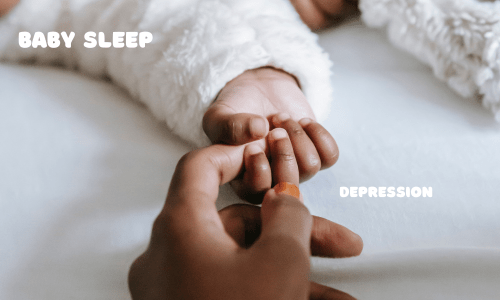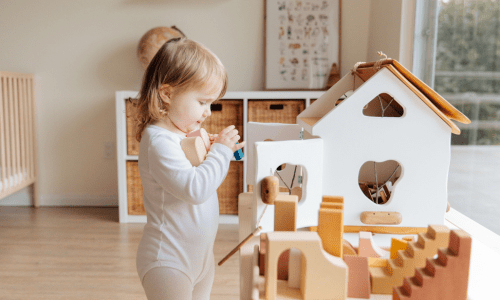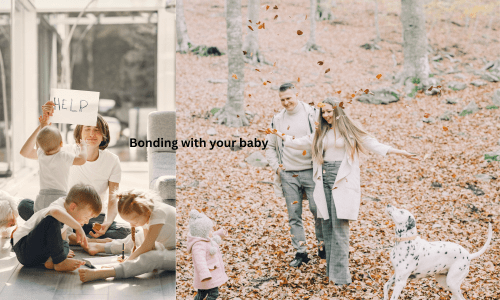Table of Contents
Introduction
As a parent, you play a vital role in nurturing your baby’s development. The early years of a child’s life are crucial for laying the foundation of various skills and abilities. Engaging your baby in fun and educational activities enhances their cognitive, social, and emotional growth and strengthens the bond between you and your little one. This article will explore ten exciting activities to boost your baby’s development.
Importance of Early Childhood Development
Early childhood development is critical when a baby’s brain undergoes rapid growth and development. By providing stimulating experiences during this period, you can promote essential skills and abilities that will benefit your child. Engaging in interactive and educational activities helps stimulate brain connections, language acquisition, fine and gross motor skills, and social interaction. So, let’s dive into ten fun and educational activities that can support your baby’s development.
-
Sensory Play Activities
Exploring Textures and Materials
Introducing your baby to various textures and materials is an excellent way to enhance their sensory development. Offer them safe objects with different surfaces, such as soft fabric, smooth plastic, or rough sandpaper. Let them touch and explore these materials, fostering their sense of touch and curiosity.
Water Play
Water play is a source of endless entertainment for babies and a great opportunity for sensory exploration. Fill a shallow basin with warm water, and let your little one splash and play with cups, toys, and sponges. Water play promotes hand-eye coordination, tactile stimulation, and cognitive development.
Sensory Bins
Sensory bins are containers filled with materials that provide a range of sensory experiences. Create a sensory bin using colored rice, dried beans, or kinetic sand. Add objects with different shapes and textures for your baby to explore. Sensory bins stimulate creativity, fine motor skills, and cognitive abilities.
-
Language and Communication Activities
Reading Aloud
Reading aloud to your baby from an early age has numerous benefits. It helps develop their listening skills, language acquisition, and vocabulary. Choose age-appropriate books with colorful pictures and engaging stories. Make reading sessions interactive by asking questions and encouraging your baby to point at pictures.
Singing and Nursery Rhymes
Singing songs and nursery rhymes is enjoyable and promotes language development. Singing and reciting verses with your baby helps them learn new words, improves their memory skills, and enhances their ability to recognize patterns in language.
Baby Sign Language
Introducing baby sign language can be an excellent way to enhance communication with your little one. Simple gestures like waving goodbye or blowing a kiss can help your baby express their needs and desires before they can speak. Baby sign language reduces frustration and promotes early language development.
-
Motor Skills Development Activities
Tummy Time
Tummy time is essential for babies to strengthen their neck, back, and shoulder muscles. Place your baby on their tummy on a soft mat or blanket and encourage them to lift their head and explore their surroundings. Tummy time helps develop motor skills and coordination and prepares them for crawling and sitting up.
Baby Yoga
Baby yoga poses, and stretches provide a gentle way to enhance your baby’s flexibility, balance, and coordination. With guidance, you can gently move your baby’s legs, stretch their arms, and engage in gentle movements. Baby yoga promotes body awareness, relaxation, and bonding between parent and child.
Crawling and Walking Practice
Encourage your baby to crawl and take their first steps by creating a safe and stimulating environment. Place toys out of their reach to motivate them to move and explore. Provide support and encouragement as they navigate their way. Crawling and walking practice builds strength, balance, and gross motor skills.
-
Cognitive Development Activities
Peekaboo
Peekaboo is a classic game that never fails to entertain babies. The act of hiding and revealing stimulates your baby’s object permanence, the understanding that objects continue to exist even when out of sight. This game encourages cognitive development, memory skills, and social interaction.
Shape Sorters and Puzzles
Introduce your baby to shape sorters and puzzles appropriate for their age. These toys challenge their problem-solving skills and hand-eye coordination. Encourage your baby to manipulate the pieces and find the correct fit. Shape sorters and puzzles promote cognitive development, fine motor skills, and logical thinking.
Cause and Effect Toys
Toys that demonstrate cause-and-effect relationships captivate babies and promote their cognitive understanding. Choose toys that respond to your baby’s actions, such as pressing buttons that produce sounds or lights. These toys teach your baby about cause and effect, encouraging their curiosity and problem-solving abilities.
-
Social and Emotional Development Activities
Baby Playdates
Organize playdates with other babies or join parent-baby groups in your community. Interacting with peers helps develop your baby’s social skills, such as sharing, taking turns, and cooperation. It also provides an opportunity for them to observe and imitate the actions of other children.
-
Puppet Shows and Storytelling
Engage your baby in puppet shows or storytelling sessions using hand puppets or soft toys. Use expressive voices and gestures to bring characters to life. This activity stimulates your baby’s imagination, language skills, and emotional understanding.
Emotion Recognition Games
Teach your baby to recognize different emotions by playing emotion recognition games. Use picture cards or facial expressions to demonstrate emotions like happiness, sadness, or surprise. Help your baby identify and understand different feelings, fostering their emotional intelligence.
-
Creative Activities
Finger Painting
Engage your baby in the beautiful world of art through finger painting. Use non-toxic, washable paints and let your baby explore colors and textures using their fingers. This sensory experience stimulates their creativity, fine motor skills, and self-expression.
-
Playdough and Clay Modeling
Playing with playdough or clay allows your baby to engage in tactile exploration and develop their fine motor skills. Provide your baby with child-safe playdough or clay, and let them shape and mold it using their hands. This activity encourages creativity, hand-eye coordination, and sensory development.
-
Music and Dance
Expose your baby to different types of music and encourage them to move and dance. Sing songs, play musical instruments, or dance together to the rhythm. Music and dance activities enhance your baby’s sense of rhythm, coordination, and self-expression.
-
Outdoor Exploration
Nature Walks
Take your baby on nature walks to explore the wonders of the outdoors. Point out trees, flowers, birds, and other natural elements. Let your baby touch leaves, feel the grass, or listen to the sounds of nature. Outdoor exploration stimulates their senses, curiosity, and appreciation for the natural world.
Playground Fun
Visiting the playground offers various opportunities for your baby’s physical and social development. Let them crawl, climb, slide, and swing under your supervision. Interacting with other children in a safe and stimulating environment promotes social skills, physical coordination, and confidence.
Sensory Gardens
If you have access to a sensory garden, take your baby for a visit—sensory gardens stimulate the senses with various plants, textures, and scents. Allow your baby to touch flowers, listen to wind chimes, and explore the different sensory elements. Sensory gardens provide a rich and engaging experience for your baby’s development.
Conclusion
Engaging in fun and educational activities with your baby is a beautiful way to support their development. From sensory play and language activities to motor skills development and creative endeavors, these activities provide valuable learning experiences while strengthening the parent-child bond. Incorporating these activities into your daily routine can nurture your baby’s growth and create memorable moments together.
Frequently Asked Questions
Q: At what age should I start these activities with my baby?
A: Introduce many activities during the first year of your baby’s life, but always consider their individual development. Start with more specific activities and gradually progress as they grow and develop.
Q: How long should each activity session last?
A: The duration of each activity session depends on your baby’s attention span and interest. Begin with shorter sessions of 10-15 minutes and increase the duration as your baby grows and becomes more engaged.
Q: Can I modify the activities for my baby’s specific needs?
A: Absolutely! Adapt the activities based on your baby’s abilities and interests. Each baby is unique, so modify the activities to suit their developmental stage and individual preferences.
Q: Are these activities suitable for premature babies?
A: Adapt many of these activities for premature babies. Always consult your pediatrician or healthcare provider to ensure the activities are appropriate for your baby’s needs and development.
Q: What are the benefits of engaging in these activities?
A: Engaging in these activities with your baby promotes sensory, cognitive, motor, social, and emotional development. These activities support brain development, language acquisition, fine and gross motor skills, social interaction, and creativity.
Now, you can access more resources and ideas to enhance your baby’s development. Click this link and discover a world of educational and engaging activities for your little one.




